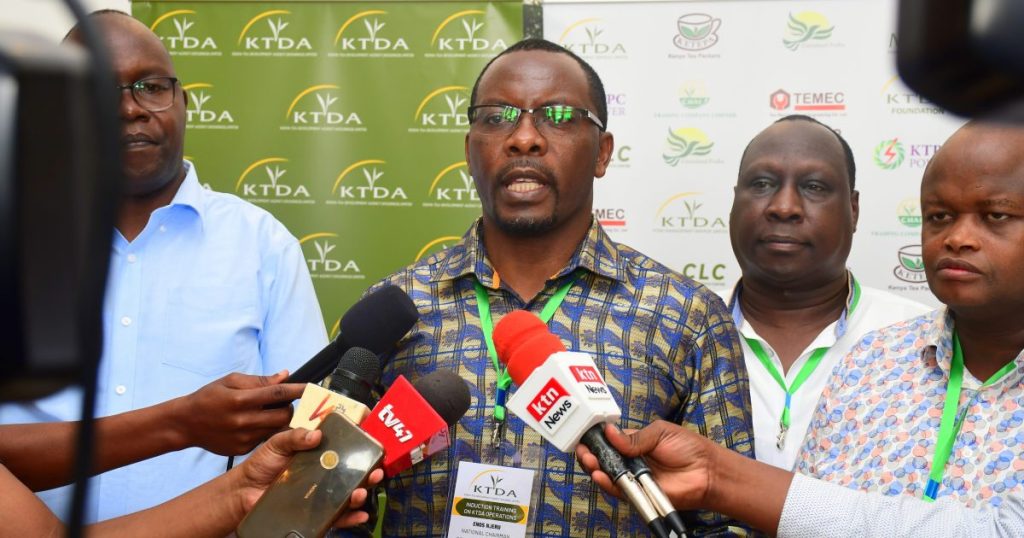KTDA to Enhance Kenyan Tea Quality to Boost Global Market Competitiveness
3 min read

The Kenya Tea Development Agency (KTDA) Holding Limited is set to implement new minimum quality standards for its smallholder tea farmers in an effort to bolster Kenya’s position in the global tea market. KTDA National Chairman Enos Njeru announced these plans, emphasizing that improved quality standards will help Kenyan tea maintain its status as a preferred product worldwide.
At the heart of this initiative is the aim to reduce the large quantities of bulk tea stored in KTDA warehouses. By diversifying its product range, KTDA hopes to alleviate issues related to overstocking of black CTC tea and cater to various market preferences. This approach was highlighted by Njeru during the opening of a four-day induction for over 300 newly elected KTDA Directors from 24 counties in Mombasa.
Njeru urged farmers to prioritize high-quality tea leaves. He pointed out that the surplus of unsold tea has been partly due to poor quality, ineffective tea handling practices, and the cessation of Direct Overseas Sales (DSO), which has impacted stock levels. To address these issues, KTDA has increased monthly payments to farmers as an incentive and is also focused on educating them about optimal tea handling techniques from farm to factory.
“Farmers who emphasize quality over quantity are seeing better returns on their products,” said Njeru. He also encouraged unity among farmers, noting that those from different regions, such as the East and West of the Rift Valley, should work collaboratively. “We aim to set a universal quality standard that ensures fairness and equality among all farmers, which will lead to improved revenue. We want to ensure that the difference in margins between the top and lowest performing farmers does not exceed Ksh10,” he added.
Njeru acknowledged the benefits of favorable weather conditions and abundant rainfall, which have contributed to increased tea production. To further support the industry, KTDA is planning to establish a common user facility in Nairobi’s Industrial Area. This facility will streamline value addition processes and reduce transportation costs.
Tea Board of Kenya CEO Willy Mutai highlighted the significant contribution of small-scale tea factories, which account for 56 percent of national tea production. Last year, the sector produced 266 million kilograms of tea, with a target of 319 million kilograms for this year. Mutai assured farmers that the unsold tea will be sold and urged all suppliers to meet the quality standard of “two leaves and a bud” or a single leaf, which is crucial for securing a good price.
Mutai also announced the reopening of Direct Overseas Sales (DSO) and discussed potential regulatory changes to facilitate direct sales at farmers’ factories. “The government is committed to supporting the tea industry through interventions aligned with the Bottom-Up Economic Transformation Agenda (BETA),” he said.
This year, the government has allocated Sh1 billion to modernize equipment at the Kenya Tea Packers Limited (KETEPA) and Sh10 billion in subsidies for fertilizers to benefit all farmers, including those in the tea sector. The support aims to enhance productivity and sustainability within the industry.
By implementing these quality standards and supporting infrastructure improvements, KTDA and the government are working together to ensure that Kenyan tea remains competitive and continues to thrive in the global market.